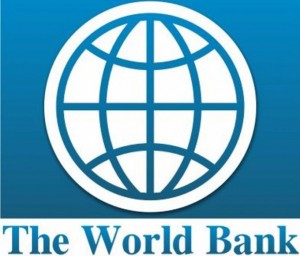West African economy expected to remain steady at 6.4% – World Bank
 Economic growth in the West African Economic and Monetary Union, is expected to hold steady at 6.4 per cent in 2020, according the World Bank’s January 2020 Global Economic Prospects.
Economic growth in the West African Economic and Monetary Union, is expected to hold steady at 6.4 per cent in 2020, according the World Bank’s January 2020 Global Economic Prospects.
The Bank indicates that regional growth in sub-Saharan Africa is expected to pick up to 2. 9 per cent, “assuming investor confidence improves in some large economies, energy bottlenecks ease, a pickup in oil production contributes to recovery in oil exporters and robust growth continues among agricultural commodity exporters.”
The World Banks points out that the forecast is weaker than previously expected reflecting softer demand from key trading partners, lower commodity prices, and adverse domestic developments in several countries.
“In South Africa, growth is expected to pick up to 0.9 per cent, assuming the new administration’s reform agenda gathers pace, policy uncertainty wanes, and investment gradually recovers. Growth in Nigeria is expected to edge up to 2.1 per cent as the macroeconomic framework is not conducive to confidence. Growth in Angola is anticipated to accelerate to 1.5 per cent, assuming that ongoing reforms provide greater macroeconomic stability, improve the business environment, and bolster private investment. In the West African Economic and Monetary Union, growth is expected to hold steady at 6.4 per cent. In Kenya, growth is seen edging up to 6 per cent,” it said.
Meanwhile, global economic growth is forecast to edge up to 2.5 per cent in 2020 as investment and trade gradually recover from last year’s significant weakness but downward risks persist.
The Bank notes that growth among advanced economies as a group is anticipated to slip to 1.4 per cent in 2020 in part due to continued softness in manufacturing.
“Growth in emerging market and developing economies is expected to accelerate this year to 4.1 per cent. This rebound is not broad-based; instead, it assumes improved performance of a small group of large economies, some of which are emerging from a period of substantial weakness. About a third of emerging market and developing economies are projected to decelerate this year due to weaker-than-expected exports and investment,” the Bank said.
Commenting, World Bank Group Vice President for Equitable Growth, Finance and Institutions, Ceyla Pazarbasioglu said: “With growth in emerging and developing economies likely to remain slow, policymakers should seize the opportunity to undertake structural reforms that boost broad-based growth, which is essential to poverty reduction. Steps to improve the business climate, the rule of law, debt management, and productivity can help achieve sustained growth.”
The Bank warned further that downside risks to the global outlook predominate, and their materialization could slow growth substantially.
“These risks include a re-escalation of trade tensions and trade policy uncertainty, a sharper-than expected downturn in major economies, and financial turmoil in emerging market and developing economies. Even if the recovery in emerging and developing economy growth takes place as expected, per capita growth would remain well below long-term averages and well below levels necessary to achieve poverty alleviation goals,” it added.
By Emmanuel K. Dogbevi
